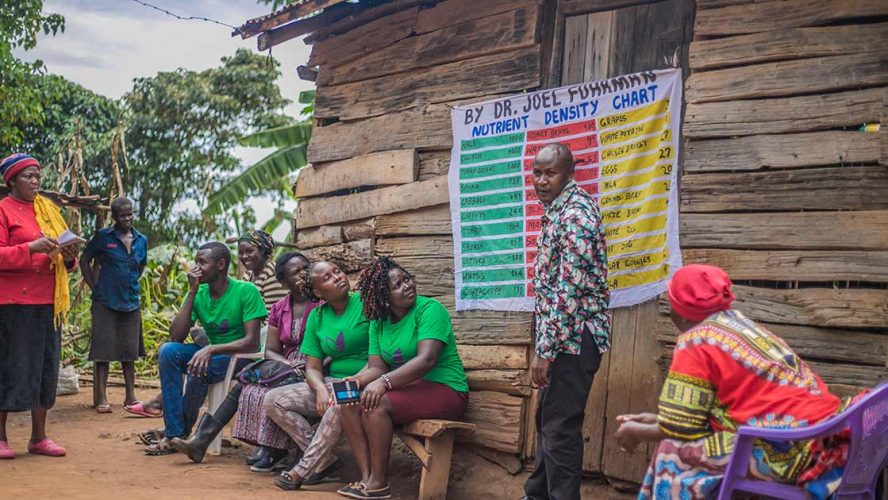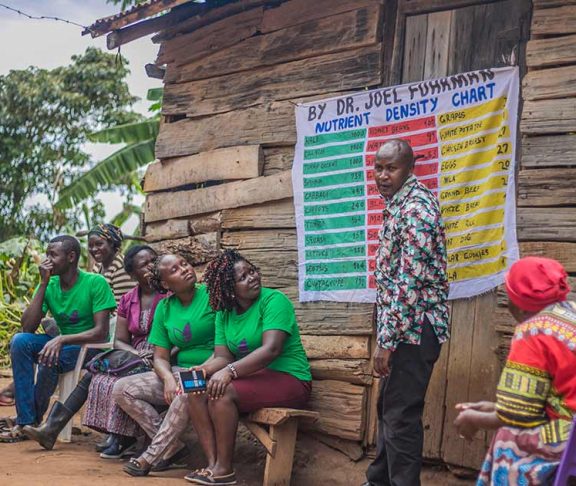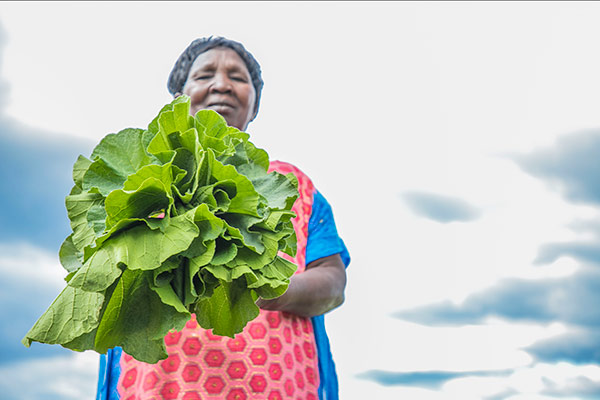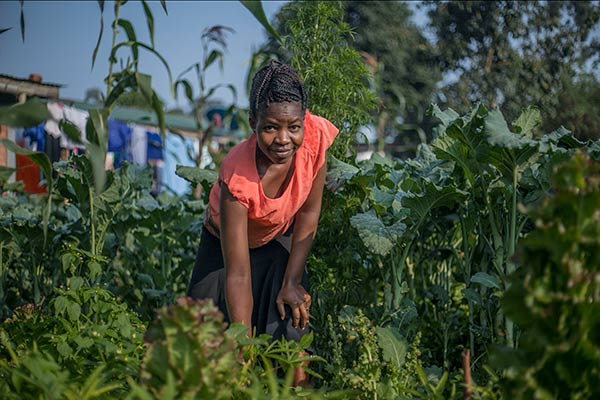
James Woller
International Executive Director, Thrive for Good
Two billion people globally — including one in three children — lack proper nutrition. In many developing African countries, about 90% of food intake comes from processed white grains and corn. While these cheap fast foods may help fill people’s bellies, they lack the vitamins, minerals, and macronutrients needed for good health. This “hidden hunger” problem comes at a high cost to the community: weak children, adults unable to fight disease and earn a living, more orphans, and no means of getting out of extreme poverty.
Thrive puts communities on a path to sustainability and new job creation
Thrive for Good (formerly Organics 4 Orphans) is a Canadian not-for-profit that’s teaching and equipping impoverished communities with the knowledge, skills, and tools to grow their own low-cost, organic, nutritious food through Life Gardens. “These Life Gardens projects enable people to grow an abundance of healthy fruits, vegetables, and medicinal plants — even with limited access to land and water — so they can become strong, healthy, and self-sufficient,” says James Woller, International Executive Director at Thrive for Good.
Founded in 2004 by Dale and Linda Bolton, Thrive for Good operates out of Kenya, with a Canadian and U.S. funding organization. Thrive’s innovative organic agriculture, nutrition, and health curriculum was designed in partnership with local leaders, who take this training back to their communities and teach others. “This model isn’t just about food security, but about nutritional security and giving people what they need to grow healthy, disease-fighting foods,” says Woller. This has a wealth of tangible benefits, from reducing illness within the community to improving children’s school performance to enabling adults to work and provide for their families. “They can also generate an income from growing surplus food and that helps get them out of poverty,” says Woller. Life Gardens have been established in over 700 villages, urban zones, schools, orphanages, prisons, and hospitals across eight countries.
“When you teach and train communities that can’t afford to buy nutritious foods how to grow their own, you can see real lasting impact,” says Woller.





